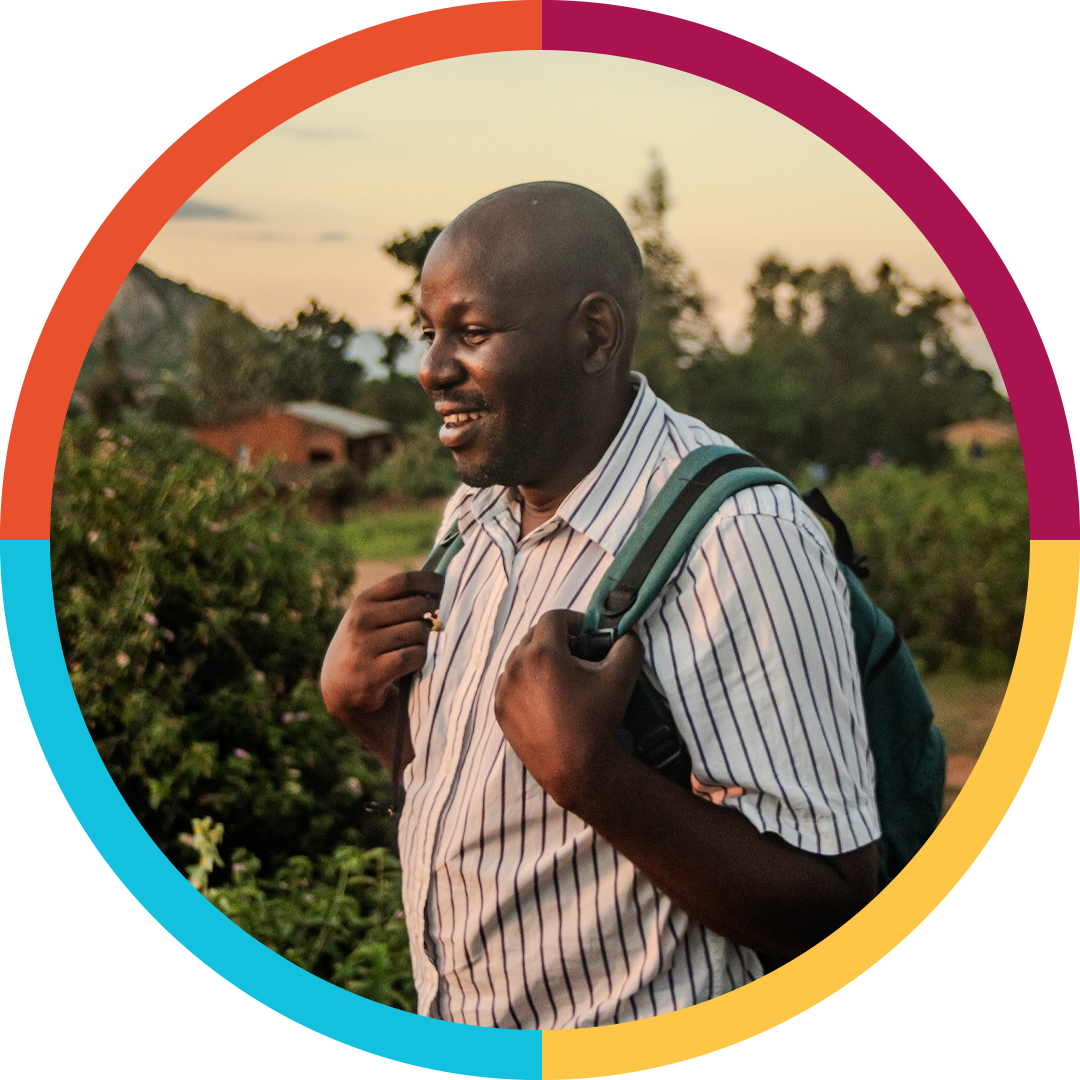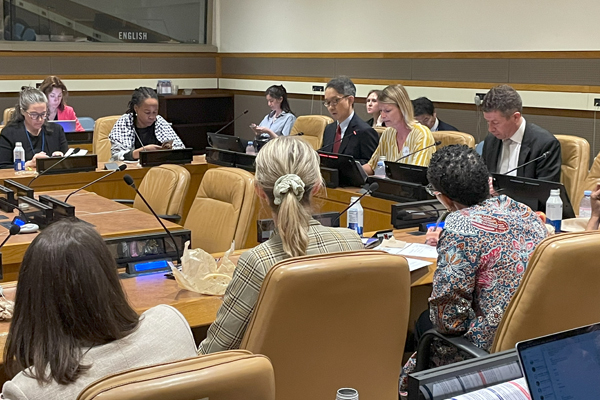With just five years left to achieve the Sustainable Development Goals, including the target of reducing premature mortality from noncommunicable diseases (NCDs) by one-third, global leaders are grappling with a daunting truth: we are off track.
Against this backdrop, the NCD Alliance—together with the Permanent Missions of Ghana and Japan to the United Nations—hosted a timely side event on 2 May 2025 during the Multistakeholder Hearing (MSH) in New York, ahead of the Fourth High-Level Meeting (HLM4) on NCDs and Mental Health.
The event, titled Linking Leadership and Accountability through Inclusive Governance on NCDs, explored how governments can take a more proactive role in reversing the rising NCD burden. It aimed to galvanise political will by sharing examples of good governance, encouraging partnerships, and centering on people with lived experience.
UN Member States are not only off-track to meet global NCD targets but also struggling in the post Covid 19 context to track their own progress. Acknowledging this challenge, speakers underscored the need to strengthen accountability mechanisms and ensure that political pledges translate into real-world outcomes.
“In the Caribbean what we’ve really started to think about is ensuring that for us the targets are realistic,” said panellist Maisha Hutton, Executive Director of the Healthy Caribbean Coalition. “We always talk about targets being SMART (specific, measurable, achievable, relevant, and Time-bound) and we say that over and over again, but we really need to make them achievable.”
According to Ambassador Oliver Maes, Permanent Representative of Luxembourg to the United Nations, “We have to recognise, according to WHO data, that there is a concerning decline in NCD surveillance capacity since the last High-Level Meeting (in 2018). The percentage of countries meeting basic monitoring standards has dropped significantly so we also need to address that issue.”
Ambassador Tomohiro Mikanagi, Deputy Permanent Representative of Japan to the UN noted that existing monitoring frameworks are no longer adequate to address new challenges including marketing of unhealthy products using digital technology and AI. “New frameworks,” he said, “should be inclusive and be developed and implemented through close collaboration with civil society organisations, private sector, academia, and other stakeholders, grounded in mutual trust, accountability and transparency.”
In that spirit, several speakers called for greater involvement of communities, especially those living with NCDs. Ms Kwanele Asante, Legal and Policy Advisor at the South Africa NCD Alliance, called attention to the need for trust and meaningful participation in the HLM4 process. “We are here to remind the United Nations, and Member States, that for us this issue is not an academic issue,” she said, speaking from lived experience with cancer and mental health conditions.
Ms Kwanele Asante emphasised that governments have a duty to ensure meaningful participation, particularly for those most affected by NCDs. She stressed that people living with these conditions must be actively involved in shaping policies, implementing programmes, and designing health systems—because they live the realities such systems aim to address.
“You can help us by implementing, at national level, consistently from around the world, the WHO Framework on Meaningful Involvement of People Living with NCDs, mental health conditions, and neurological conditions… make sure that you include young people, who are also severely impacted,” added Asante.
Dr Natalia Linou, Deputy Director for HIV and Health at the United Nations Development Programme (UNDP), highlighted the complex challenge of engaging with the private sector while safeguarding policymaking from undue industry influence. Reflecting on collaborative efforts with the World Health Organization to implement the Framework Convention on Tobacco Control, she emphasised how this experience revealed the need to closely assess the legal environment to prevent industry interference. “One key result is that the laws alone, although essential, aren’t going to result in progress unless there are real coalitions on the ground, unless there are incentives, unless you have really persuaded a multitude of ministries—not just the health ministry—that this is essential,” said Linou.
Speakers also raised alarm over the patch state of data systems globally. Dr Mary-Anne Etiebet, President and CEO of Vital Strategies, highlighted the difficulty of making evidence-based decisions in contexts where foundational data systems are missing. “We are working in a world where so many governments lack foundational data systems… Right now, less than 40% of women actually have a legal identity because their births are not registered. When you look at death registration, in many countries that number is approaching zero percent. And so when you are not reporting deaths, you don’t understand why people are dying.”
Roxana Mehran, Vice-President of the American College of Cardiology, amplified that concern during the question-answer session. “We’re dependent on data to try and understand how to not only implement care but also to understand what the issues are, where to focus around the globe, and where to put the resources.”
“We have zero to no data on the most vulnerable communities and even the communities here in the United States, in the rural areas, we’re finding very little data, and when the data comes in it is lagging by two years… by the time we get data and want to implement something it’s already too late because something else is sprouting elsewhere,” added Mehran.
Despite current financial constraints, Etiebet argued that this could be a moment of transformation. “Current financial cuts to global health,” she said, “do create an opportunity for us to reimagine how we think about the role of data, to invest in foundational systems, to invest in systems that are embedded within governments so that when funding is disrupted it doesn’t mean that we have no more access to the data.
“Invest in involving civil society into that process so that there’s accountability and transparency and that there are also protections around data,” she added.
The discussion closed with a renewed call for leadership grounded in trust, transparency, accountability and meaningful participation. As the world prepares for HLM4, the time to act boldly and inclusively has never been clearer.




